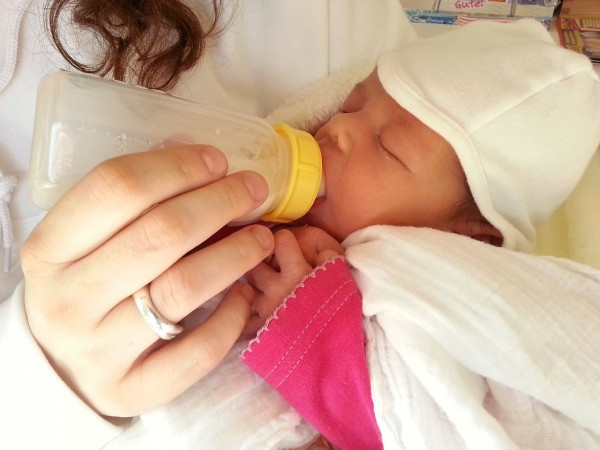Researchers Find Link Between Breastfeeding and Type 2 Diabetes

Researchers found that following a 12-hour fast, the lactating mothers’ liver and fat tissues produced more sugar and fat compared to formula-feeding participants.
New research led by UT Southwestern researchers suggests that "breastfeeding secures the delivery of sugar and milk" to produce milk by altering the insulin sensitivity of organs that provide or require these nutrients.
The study findings published in Diabetes this month could explain the manner different tissues are cooperating to begin and retain lactation and recommend approaches to help enhance the success of breastfeeding for mothers experiencing insufficiency in producing milk.
As suggested in epidemiologic studies, breastfeeding shields mothers from developing Type 2 diabetes, even many years "after their children have weaned." However, according to UT Southwestern internal medicine associate professor, Maria Ramos-Roman, MD, how much benefit arises remains unclear.
One hypothesis, research indicates, is that breastfeeding changes the manner the body is using insulin, the hormone that enables cells to receive glucose from the bloodstream. Glucose is a type of sugar that controls cells.
ALSO READ: Probiotics Along With Breast Milk Provide Microbiome Boost in Premature Babies, Researchers Find
Breastfeeding and Non-breastfeeding Mothers
Comprehensive metabolic studies have presented that even though pregnancy lowers the sensitivity of the body to insulin, "lactation may restore" such sensitivity to "a pre-pregnancy state."
It is unclear, though, how such a process takes place and how it impacts organs like the liver or fat tissue that are both extremely insulin-sensitive.
To learn further, Dr. Ramos-Roman and her associates recruited 18 women who had just given birth. Among these respondents, 12 were either exclusively breastfeeding or feeding their babies with less than six ounces of formula each day. The six other participants were feeding their babies with all-formula.
Each of the participants, at five weeks postpartum, came to UT Southwestern to undergo a thorough medical exam to guarantee that they were healthy and safe to take part in the other parts of the study.
A week later, the participants came back for another test known as "hyperinsulinemic-euglycemic," which measured their insulin sensitivity.
Participants of the study, by eight weeks postpartum, had another test-their third. Specifically, they went through an imaging type, also known as the "magnetic resonance spectroscopy" that quantified the amount of fat in their livers.
DON'T MISS THIS: Why Stress Makes One Overeat or Not Eat at All, and How to Overcome It
Research Findings
The study authors found that all of the volunteers had low concentrations of blood insulin, characteristic of the postpartum period, whether they were breastfeeding or not.
Nonetheless, even if the results presented low levels of insulin, after fasting for 12 hours, the study showed that the lactating mothers were able to produce "2.6-fold more glucose."
The same group was also found to have released "2.3-fold more fatty acids from storage in their fat tissue" compared to the group that fed their babies with formula. Such a process is called lipolysis.
The results also showed that both the production of glucose and the lipolysis process was controlled in both groups when the study authors simulated what they called a "fed state" by supplying insulin using the clamp.
However, in the study, suppressed lipolysis was heightened by higher prolactin levels. Prolactin is the hormone that stimulates the production of milk in lactating mothers, together with lower fatty acid levels in the blood and lower fat amounts in their liver.
Insulin Sensitivity Boosted
Research findings proposed that breastfeeding appears to boost the sensitivity of insulin in organs that are highly sensitive to insulin.
Furthermore, following a 12-hour fast, the lactating mothers' liver and fat tissues produced more sugar and fat compared to formula-feeding participants.
However, after they ate food, or while in the "conditions of a hyperinsulinemic-euglycemic clamp," lactating mothers reacted to small increases in levels of insulin "by holding on to more fat" compared to formula-feeding mothers.
IN CASE YOU MISSED THIS: 6 Reasons Why You're Gaining Weight Unintentionally
Check out more news and information on Breastfeeding and Diabetes on MD News Daily.
Aug 28, 2020 07:20 AM EDT





